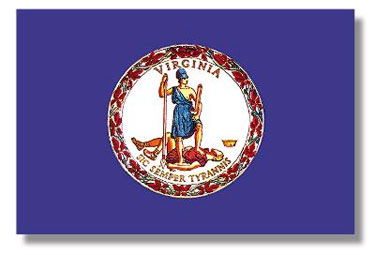Government procurement fraud cases usually fall into one of several categories, and today’s post takes a look at this taxonomy. (As regular readers know, of course, when we use the word “government” in this blog, we generally mean federal, state and local governments.)
At the outset let me say that there are, essentially, an unlimited amount of ways to steal from the government during the procurement process. As a result, fraud cases come in all sizes and shapes and are as varied as the human imagination and the needs of government to purchase goods and services. The broad scope of modern governmental needs requires an equally broad weapon, in the form of the federal False Claims Act and the Virginia Fraud Against Taxpayers Act.
I would like to point out several things before describing the six broad categories of claims.
First, while qui tam cases under the federal FCA and VFATA case take all sorts of unusual forms (and new ones are being invented every year) most procurement fraud cases involve at least one of these categories. I will note also that in my experience, it is very rare — if not unheard of — for a case to involve only one of the categories. That is, if a contractor breaks the law by overcharging the government, they will almost certainly certify somewhere along the line that they have not overcharged the government, and when they do they will have committed a second violation. As a second example, if a contractor plans to not comply with an important government requirement at the time they make a bid to participate in a contract (or plans to substitute used materials for new ones) then the contractor has not only broken those conditions but has also committed a fraud in the inducement type of violation.
Second, although these are typical procurement claims (if we define procurement as the purchase of non-health care goods and services, very closely-related violations exist in the health care context.
I think of the common procurement fraud claims as follows:
1. Overcharging cases: The common element of overcharging cases is a claim for goods or services that were simply not provided, or billing for higher priced goods or services than were actually provided. A type of case I call “the Houdini” false into this category. The Houdini is so named because these cases will very often involve charging the government for the work of an employee who, like Harry Houdini, is able to be in two places at the same time…
2. Fraud-in-the-inducement cases: These cases arise when a contractor makes false statements, false promises, or take a variety of other actions that result in the award of a government contract which the contractor, if it had told the truth, would not have received. A defective pricing case (in which the contractor submits false pricing data to the government and then, once it has the contract, increases the prices) is an example of a fraud-in-the-inducement case. Another famous example of this kind of case is when a company misrepresents itself as a minority-owned or veteran owned small business to win a set-aside contract.
3. Failure to Comply with Important Government Rules and Requirements: In these cases the contractor promises to comply with an important government requirement, such as a statute, regulation or contractual requirement, and then does not comply with the important requirement. Despite not complying with the requirement, the contractor then later promises (or “certifies”) that they did comply with said requirement.
These cases are sometimes called “false certification” cases because the way a government contractor confirms that it lived up to all of the required promises is by way of a certification that it did so. I don’t really care for the short-hand term “false certification” because that implies that a contractor broke the law merely by forgetting to check off a box on a form or something like that.
4. The Switcheroo: In these cases the contractor promises to deliver one thing — for example office supplies manufactured in the United States — but instead delivers something else, such as office products made in Taiwan. Another example would be the delivery of used materials when the contract called for new materials.
5. Fraudulent accounting: contractor accounting fraud usually means a contractor’s creative attempts to pass costs on to the government that the government is not responsible for. In broad terms, this type of claim involves disguising unallowable costs as allowable costs, although that description is very broad.
6. Reverse false claims : a reverse false claims case involves a defendant making false statements (or engages in other fraudulent conduct) with the goal of decreasing an obligation to pay money to the United States.
